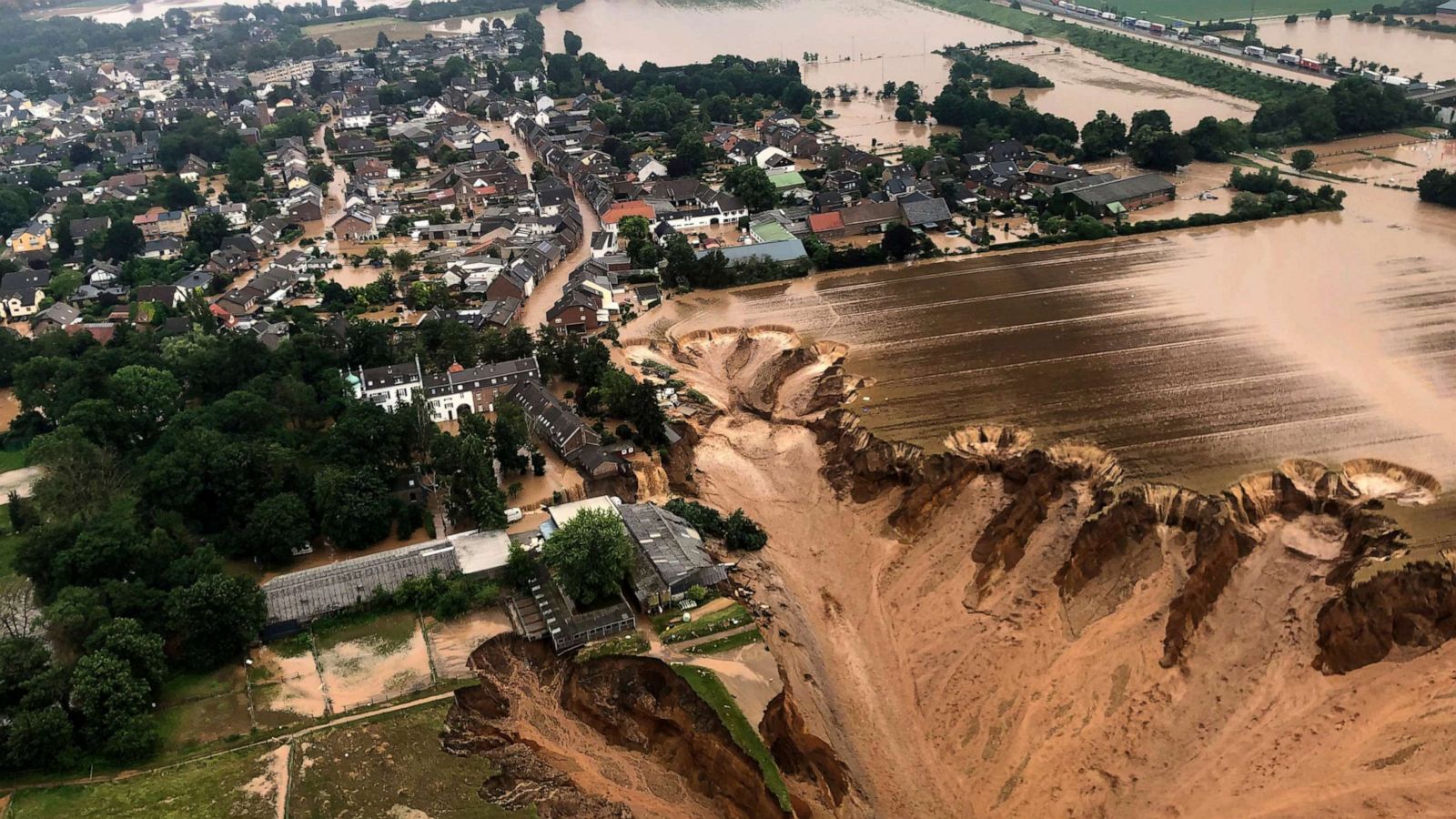Western Europe is reeling from the catastrophic impact of severe floods, which have claimed numerous lives, caused widespread destruction, and displaced thousands of people. Heavy rainfall, leading to overflowing rivers and flash floods, has triggered a state of emergency in several countries, leaving communities grappling with the aftermath of this natural disaster.
The unprecedented flooding has impacted regions across Germany, Belgium, the Netherlands, and Luxembourg, with the German states of North Rhine-Westphalia and Rhineland-Palatinate being the hardest hit. Entire towns and villages have been submerged, homes have been destroyed, and vital infrastructure, including roads and bridges, has been washed away.
The death toll continues to rise as rescue and recovery efforts are underway. Authorities and emergency services are working around the clock, using helicopters, boats, and other resources to evacuate stranded residents, provide medical assistance, and search for missing individuals. The full extent of the damage and the number of casualties are yet to be determined as the situation remains fluid.
German Chancellor Angela Merkel expressed her deep condolences to the affected communities and pledged government support in the recovery process. The European Union has also offered assistance, with neighboring countries providing aid and resources to support rescue operations and offer shelter to those displaced.
The devastating floods serve as a stark reminder of the growing threat of climate change and its impact on extreme weather events. Scientists have long warned that global warming increases the likelihood of intense rainfall and subsequent flooding. The recent events in Western Europe highlight the urgent need for enhanced measures to mitigate and adapt to the effects of climate change.
As communities come together to recover and rebuild, international support and solidarity have poured in. Volunteers, organizations, and individuals from across Europe are offering assistance, including providing food, clothing, and shelter to those affected by the floods.
The focus now turns to the arduous task of assessing the damage, providing immediate relief to those impacted, and implementing long-term strategies for recovery and resilience. Efforts will be made to restore infrastructure, ensure access to clean water and sanitation, and provide psychological support to those traumatized by the disaster.
The floods in Western Europe serve as a somber reminder of the vulnerability of communities to extreme weather events. The incident underscores the importance of comprehensive disaster preparedness, investment in climate resilience, and international cooperation to address the challenges posed by climate change.
As the affected regions mourn the loss of lives and begin the process of rebuilding, the collective efforts of governments, organizations, and communities will be crucial in supporting those affected, fostering resilience, and working towards a more sustainable future.










